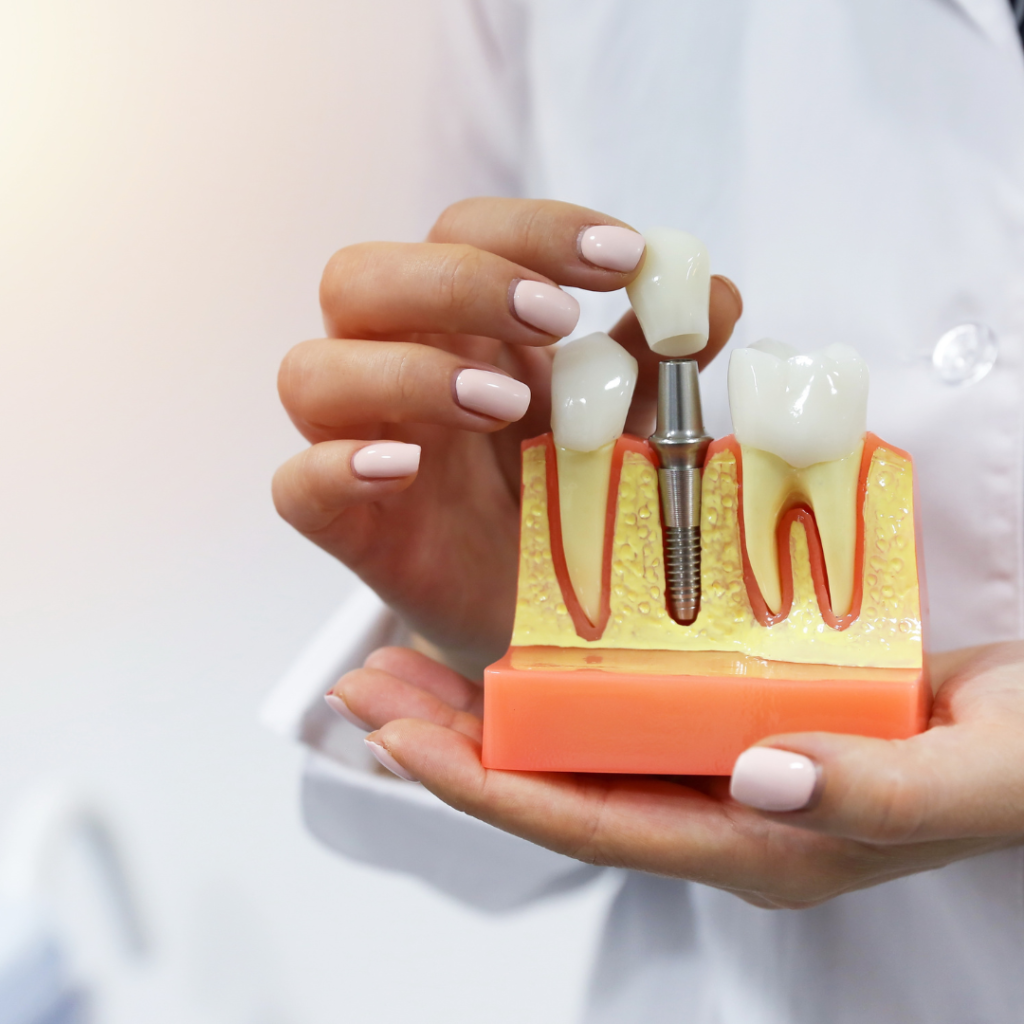Dental Implants: A Permanent Solution for Missing Teeth
Explore the world of dental implants, a state-of-the-art tooth replacement option that offers durability, aesthetics, and restored oral function. Learn how dental implants work, when they are recommended, and their significance in modern dentistry.
Losing a tooth can have a profound impact on your smile’s aesthetics and your ability to eat and speak comfortably. Fortunately, dental implants offer a revolutionary solution that not only restores missing teeth but also provides unmatched durability and natural aesthetics. In this comprehensive guide, we’ll delve into dental implants, explaining what they are, how they work, and their significance in modern dentistry.
Understanding Dental Implants
Dental implants are artificial tooth roots made of biocompatible materials, typically titanium. They are surgically placed into the jawbone to serve as a stable foundation for replacement teeth. These replacement teeth, known as crowns, bridges, or dentures, are custom-made to match the color, shape, and size of your natural teeth, resulting in a seamless and natural-looking smile.
The Dental Implant Procedure
The process of getting dental implants typically involves several stages:
Evaluation:
Your dentist will assess your oral health, take X-rays, and discuss your suitability for dental implants.
Implant Placement:
In a surgical procedure, the dental implant is placed into the jawbone. Over a few months, the implant fuses with the bone in a process called osseointegration, ensuring stability.
Abutment Placement:
Once osseointegration is complete, an abutment is attached to the implant. The abutment serves as a connector between the implant and the replacement tooth.
Crown or Prosthesis Attachment:
A custom-made crown, bridge, or denture is securely attached to the abutment. The replacement tooth is designed to blend seamlessly with your natural teeth.
When Are Dental Implants Recommended?
Dental implants are recommended in various situations, including:
Single Tooth Replacement: For replacing one missing tooth without affecting adjacent teeth.
Multiple Tooth Replacement: For replacing several missing teeth, either as separate implants or as part of a bridge.
Full Arch Replacement: For individuals missing all or most of their teeth, implant-supported dentures offer stability and improved function.
Benefits of Dental Implants
Dental implants offer numerous advantages, including:
Durability: Implants can last a lifetime with proper care.
Natural Appearance: They provide a natural-looking smile that blends seamlessly with your existing teeth.
Improved Function: Implants allow you to eat, speak, and smile with confidence, just like you would with natural teeth.
Preservation of Jawbone: Implants help maintain the integrity of the jawbone, preventing bone loss that can occur with tooth loss.
No Damage to Adjacent Teeth: Unlike traditional bridges, implants do not require the alteration of adjacent healthy teeth for support.
Caring for Dental Implants
Proper oral hygiene, including regular brushing, flossing, and dental check-ups, is essential to ensure the longevity and health of your dental implants.
Conclusion
Dental implants represent a groundbreaking advancement in modern dentistry, providing a permanent solution for missing teeth that offers durability, aesthetics, and restored oral function. If you’re considering dental implants, consult with your dentist to explore how this innovative treatment can enhance your smile and improve your quality of life.

